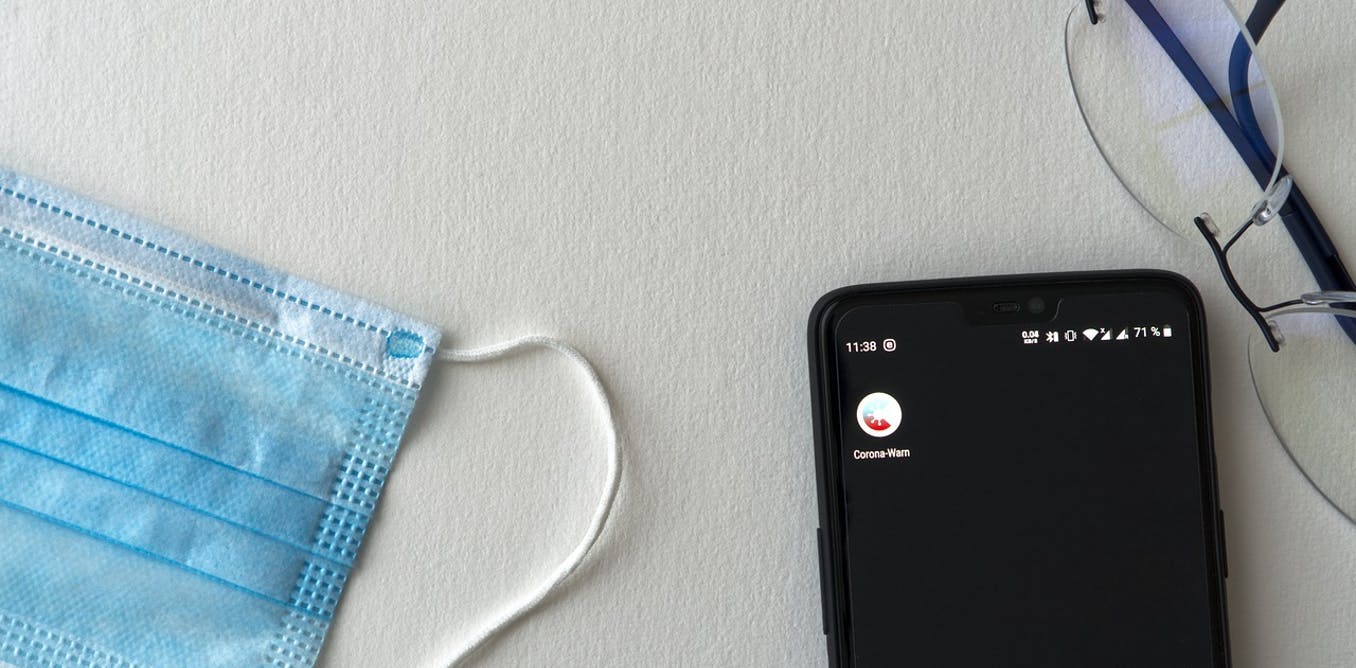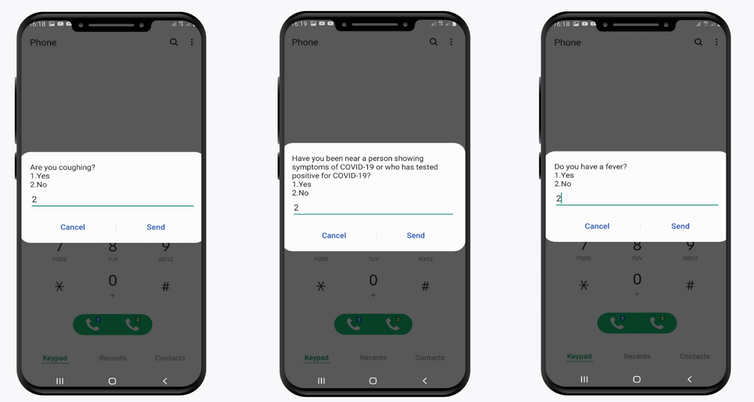How digital technology helped support Ghana’s COVID response

Real-time surveillance has been key to the global pandemic response. Wikimedia Commons
Real-time surveillance of reported COVID infections has been key to the global pandemic response. Many tools, devices and apps have been used to support surveillance. China, South Korea and Malaysia developed some early in the pandemic and many others were created by other countries later on.
Some of these platforms will also have a role to play in a post-pandemic world. Enhancements in digital technology, mobile phone networks, and the potential in telehealth systems could help reshape what healthcare looks like in resource-poor settings.
National and sub-national level dashboards are already commonplace. In the UK, for example, the government portal covers the latest daily statistics around cases, hospitalisations and deaths. Countries such as South Korea used mobile phone technology to develop apps that support their testing programmes.
Beyond the pandemic, the use of mobile phones to support healthcare has been an emerging trend in sub-Saharan Africa. Examples include the CDC Foundation funding Kenya’s Mobile Post Exposure Prophylaxis (mPEP) initiative. This uses mobile phone communications to track progress and adherence to treatment by healthcare workers who have potentially been exposed to HIV. And in Benin, apps are being assessed to book an appointment to see a doctor.
In a recent paper, we looked at how a Ghanaian software company, Cognate Systems, adapted one of its data platforms to help report and track COVID symptoms across the country.
We examined the project and analysed the platform, its features, and how it was used. Our main findings were that self-reporting COVID-like symptoms via a mobile platform is feasible, and that this could detect outbreaks more rapidly than routine surveillance.
Based on our findings we made some recommendations about how technology could be used in public health emergencies in a developing country like Ghana.
What we found
The data platform, called Opine, was built to gather information about diseases from diverse sources and provide insights in real-time. Our project aimed to find out whether users would interact with the system and report symptoms that might be COVID-19, and whether healthcare workers would value the information sent through.
The feasibility study took place in four districts; the peri-urban sites of Ashaiman and Kpone-Katamanso, Greater Accra, and the rural areas of Nkwanta South and Nkwanta North, Oti region.
Added: The system is easy to use. A user just has to dial a shortcode number (called an Unstructured Supplementary Service Data, or USSD) on their mobile phone to start interacting with Opine and a series of questions would appear.

The aim was to ensure that everyone in the country could participate in disease surveillance. And so the technology was adapted to ensure it could be used in places where internet connectivity is unreliable or lacking.
It had to work on all mobile phones, not just a smartphone, and without internet access. The shortcode number could be dialled free of charge, and did not require any credit on the phone to make the call. Because the platform wasn’t fixed to a particular user account it was suited for communities where mobile phones are shared among residents.
We saw that over 1,200 users dialled the number over the four month testing period. The feedback from users and healthcare workers was that the platform had the potential to offer timely insights into the spread of the virus within communities.
It has the potential for integration into routine surveillance infrastructures, but communities would have to be reminded to use it.
The project highlighted a possible route for regular and early reporting of COVID-19 symptoms to help identify new cases. For example, several reported potential cases in one area could indicate a ‘hot spot’ of an outbreak.
Technology in health crises
Managing public health emergencies with digital and mobile devices has developed in leaps and bounds in the last decade. An example is the use of portable sequencing devices to investigate the genomics of Ebola virus from infected patients. This has helped track the sequence and direction of an outbreak.
Real-time data platforms such as Opine have the potential to improve surveillance and support early reporting of other public health emergencies. For example, they could support questions relating to a meningitis outbreak, earthquake, flood or urgent need for food or clean water.
A post-pandemic healthcare service in Ghana and beyond could usefully incorporate more elements of mobile health programmes. It could collect more electronic data and engage more with community health centres and local pharmacies.
The Ministry of Health and the Ghana Health Service have significant experience using mobile apps and mobile devices to improve realtime data collection for immunisation and logistics management. COVID-19 contact tracing and vaccine administration were done with the aid of mobile applications and mobile devices. As internet coverage and network quality improves, telemedicine (remote consultations using video or telephone calls) will increasingly become an option.
There are also potential funding avenues to explore. New uses of technology and devices in sub-Saharan Africa could be driven by donations from the global north. But caution is needed. About 40%-70% of donations aren’t useful because the technology does not function properly or is inappropriate in the local setting, or staff are not trained on its use.
Use of any new technology has to be guided by local context and acceptability. Country-led initiatives are more likely to succeed and to be sustainable.

Michael Head has received funding from the Bill & Melinda Gates Foundation and the UK Department for International Development.
Kwabena Nuamah is a co-founder of Cognate Systems, the owner of the Opine platform.
The case study cited in this article was funded by the University of Southampton Strategic Development Fund
Laud Boateng receives funding from the UK Department for International Development.






